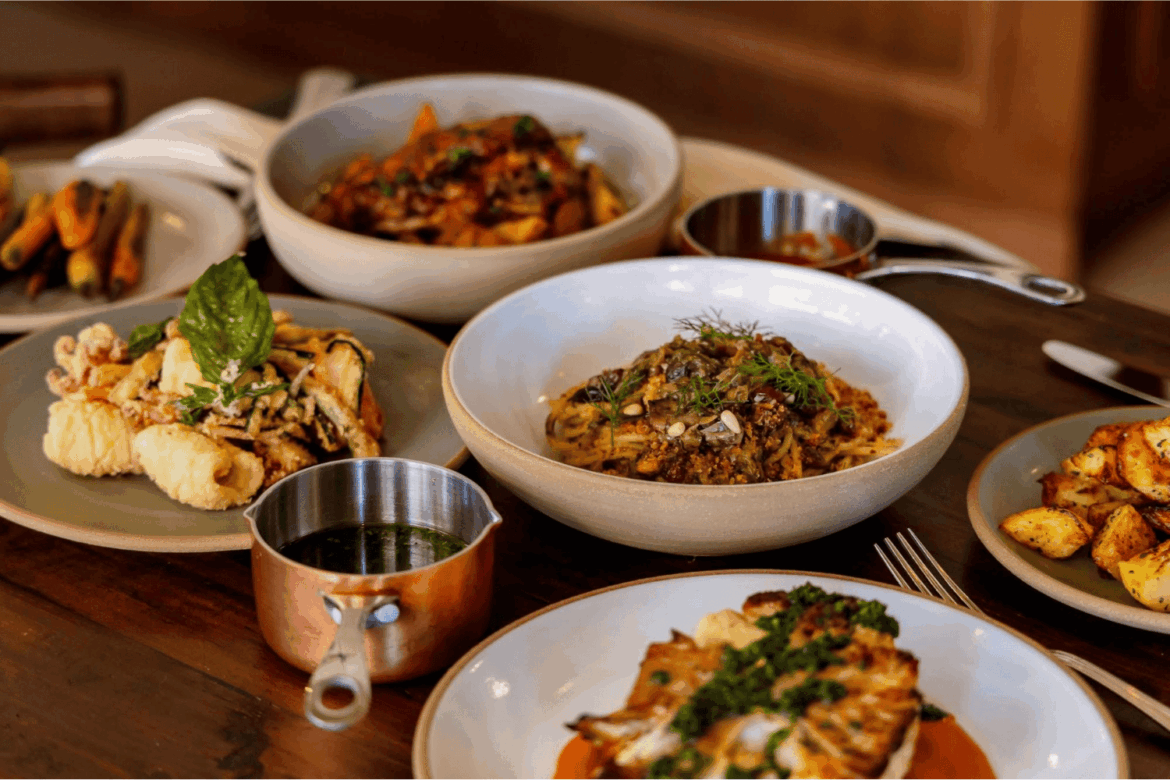11
In New York, Italian food is everywhere — and that’s part of the problem. From handmade pasta shops to influencer-fueled trattorias, the city offers more Italian options per block than almost anywhere outside Italy. However, abundance doesn’t always equal clarity. For diners, even the educated ones, it can be hard to distinguish between what’s traditional and what’s opportunistic, what’s rooted in heritage and what’s chasing a trend.
Sicilian cuisine, in particular, is often flattened — reduced to eggplant, red sauce, and the occasional cannoli. In reality, it’s a cuisine defined by contrast: bold but restrained, humble but complex, rural in spirit yet layered in technique. At Ficuzza that complexity is finally allowed to breathe. The food is slow, generous, and deeply specific — a conversation in the dialect of the island itself.
Opened by longtime restaurant and hospitality entrepreneur Francesco Realmuto, Ficuzza is the sister restaurant to the nearby Realmuto pasticceria. Where Realmuto may feel polished and patisserie-focused, Ficuzza speaks in a more familiar tone — one of olive oil and the smell of tomatoes melting down in a pan.
(Courtesy)
A Name That Means Something
The name Ficuzza isn’t invented. It’s real — a small, forested village outside Palermo where Francesco spent time as a child, picking chestnuts with his father and learning to understand food as memory. The restaurant carries that imprint. Nothing is overly stylized. The interiors are warm and textured. The plating is unfussy. But the flavors? They land with intention.
This is a place where regulars greet each other over spritzes, where the pizza oven is visible from the dining room, and where every dish on the menu seems to have a story.
Pizza and Sicilian Staples
The Spaghetti con le Sarde anchors the pasta menu. A bold, unmistakably Sicilian dish, it combines fresh sardines, wild fennel, and toasted breadcrumbs for a flavor that’s earthy, briny, and deeply regional. Alongside it, Pasta alla Norma, with fried eggplant and ricotta salata, offers a more delicate counterpoint rooted in the Catanian tradition.
The Salsiccia alla Griglia, made in-house, is grilled and served with a side of tomato salad. It’s a dish that doesn’t need translation or embellishment. The Caponata di Melanzane also stands out. The sweet-sour eggplant stew balances tomatoes, capers, and vinegar in a way that speaks to generations of Sicilian home cooks.
(Courtesy)
For pizza lovers, Ficuzza delivers. The dough is fermented, thin but structured, blistered on the edges, and made to hold flavor without sag. It is no surprise Francesco quips that it’s probably one of the restaurant’s biggest draws. Options range from the spicy Diavola to the classic Capricciosa. Every pie is cooked to order (and to satisfy).
Appetizers like Carciofi alla Romana (braised artichokes), Arancine di Carne, and Insalata di Finocchi e Arrance reflect the broader Mediterranean influence in Sicilian cuisine — citrus, herbs, and a touch of bitterness.
And for those who want to finish sweet, yes, there’s a Cannolo — crisp-shelled, piped to order, no chocolate chips in sight.
Casual, but Committed
(Courtesy)
Ficuzza doesn’t announce itself with neon or theatrics. Instead, it hums at a different frequency: neighborhood-y, serious, grounded. The staff know their wines. The olive oil is real. The hospitality is unfussy but alert. This is the kind of place where someone might come in for pizza and stay for a bottle of Nero d’Avola and three courses. Or where a solo diner can sit at the bar with a plate of pasta and feel completely at ease.
What Francesco has created here isn’t an export or a theme. It’s a modern Sicilian trattoria that lets the food speak for itself. In a city that so often flattens “Italian” into a single genre, Ficuzza brings back dimension — and dignity.
Presented by: APG





Dining and Cooking